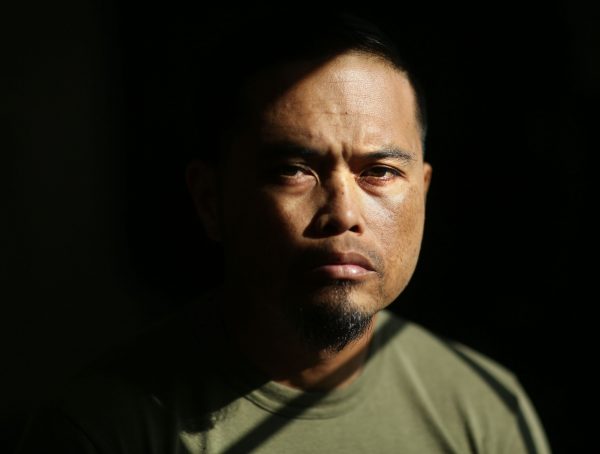
Everybody has a story, it’s often said. CBS’s Steve Hartman turned the adage into a franchise. NBC’s Bob Dotson does something similar in his American Story features for the Today Show. They make it look easy, but often times it’s not. Just because people have a story doesn’t mean they can tell it well. That’s where a skilled listener comes in.
John Larson is one of the most skilled listeners I know. A former NBC correspondent, he’s now working on a series called Flying Coach–stories about people he sits next to on airplanes–that premiered on the PBS NewsHour in December. I asked John how he learned to tease out stories like these; here’s what he wrote back:
“I’m sitting in 31B – the middle seat, of the last row, of a sold out, overbooked Alaska Flight #579 to Portland. A good place to reflect on Flying Coach, no?
“To answer your questions, I guess I’ve always sought out conversations, but really began listening closely after I became a journalist. Some of the best stories by journalists whose work I admired (John McPhee, John Hart, Charles Kuralt) revealed a gifted ear for detail. I realized they not only listened closely, but loved the stories they were gathering. As a general assignment reporter, I found small, telling details about someone in my story were often the best part.
“Finding useful personal stories begins with the search for details that are both compelling and speak to a larger issue. It is not enough to ask personal questions. Good answers must make sense, and matter.
“For someone not used to doing this, I’d say take whatever moments you can to empathize with the regular people caught in the story you’re covering. Imagine your family going through the same thing. What would you ask them? Be respectful. Your body language, patience, and tone will communicate whether you actually care about their difficulties, or whether you just want to score an interview. People often open up to journalists who care. You can’t really fake it.
“I listen for something specific that makes me think ‘Oh wow.’ A detail which helps me understand better what is at stake. The more specific, and less generic the better. It’s one thing to say a widow misses her husband on holidays. It another thing to discover she sprinkles his aftershave on her pillow every night (as Chip Scanlan reported for the St. Petersburg Times about a woman whose husband died from asbestosis.) The right, personal detail makes a story memorable.
“The next step is to realize these personal details and stories not only improve regular assignments like fires, floods, robberies etc. Personal stories can be an entrance to bigger, more important stories–the loss of unemployment benefits, rising income disparity, the lack of medical insurance, rising debt, patriotism. In Flying Coach – Normandy, the family’s story is representative of deeply resonant American themes – immigration, struggle, family, sacrifice.
“Simply put, I look for interesting people, and listen for which of their personal stories speak to the larger audience.
“A note about the search for details. I call it, perhaps unfortunately, “picking pockets.” In my last investigative story I went to a morgue, and looked through through personal items found in the pockets of unidentified immigrants who died in the Arizona desert–literally looking in their pockets for the right detail. Picking pockets can’t be stealing. The last thing someone needs is a reporter out to rip them off for a story. It is more learning how to appreciate, empathize.
“Vetting these ‘Flying Coach’ stories is not much different than regular news stories. As you get into them, you see family letters, documents, you talk with neighbors, relatives, etc.
“Normandy’s story actually began with him asking me a question. He wanted to know what I was writing on my laptop. (Ironically, it was another Flying Coach story about a seat mate who shared her harrowing story of escaping domestic violence.)
“I should say that on many flights, I don’t say a word. On others, conversations happen. When they do, there’s sometimes a confessional aspect, sort of a ‘I’ll never see this person again so I can share things I might not share with someone I know.’ I’ve heard stories of infidelity, heartbreak, depression etc this way. Often, the quality of stories I hear has a lot to do with how much I am willing to share about myself.
“Now that I’ve started writing these down, of course, the rules have had to change. I’m upfront about being a reporter who sometimes writes these stories down. I warn people. And, if there is something someone doesn’t want published, I don’t. Simple. They’re not running for Congress, after all, they are just flying home.
“The point of Flying Coach, I suppose is to appreciate people around us. The wonderfully talented CBS Correspondent Steve Hartman proved in his series that ‘Everybody Has A Story worth hearing. Flying Coach shows it also holds true at 30,000 feet.
“We just landed. Time to go.”
I’d like to see more of Larson’s Flying Coach stories. If you agree, please chime in on this PBS page.








